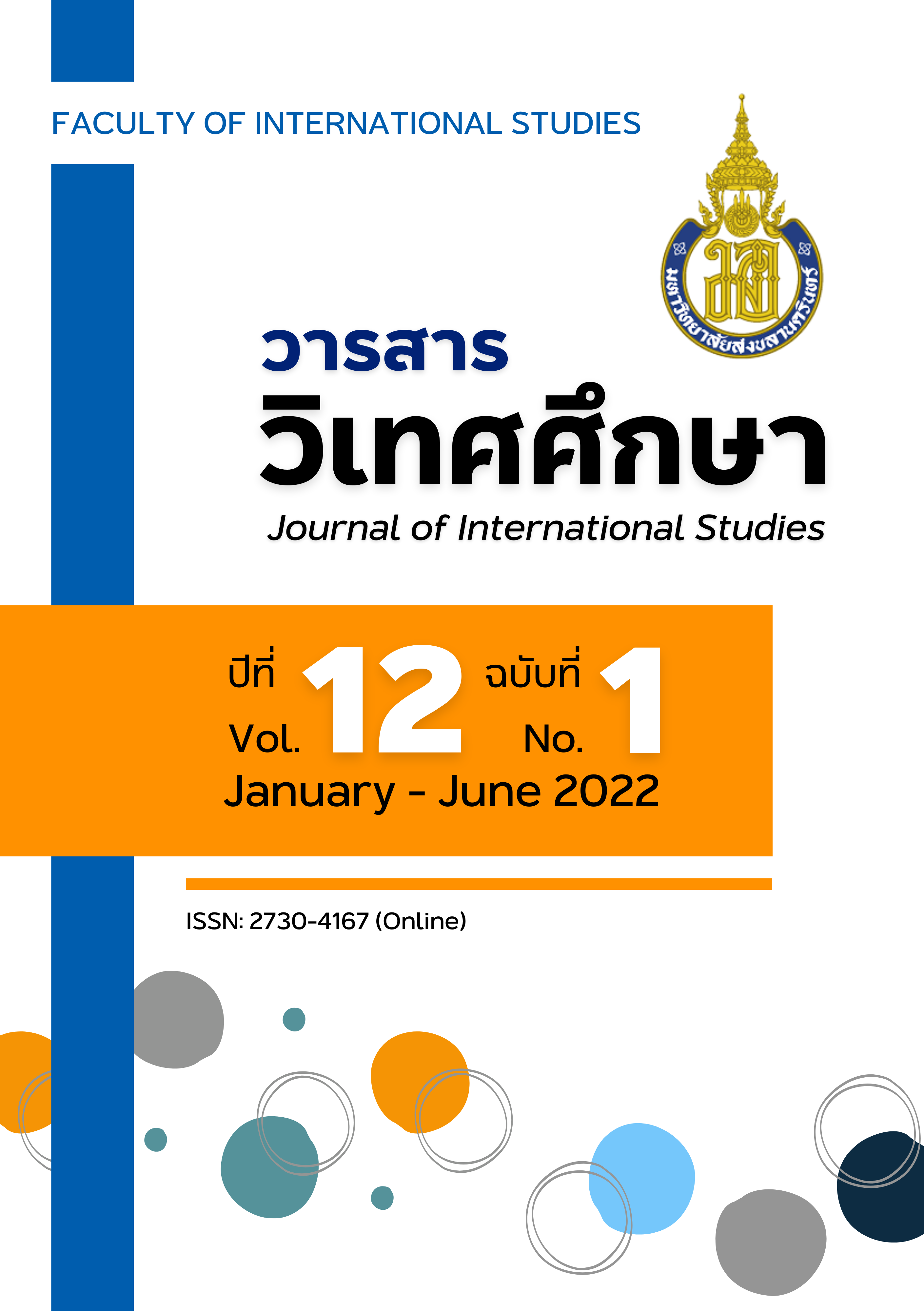Generational Differences and Job Satisfaction in Human Resources: A Study of University Lecturers at Prince of Songkla University, Phuket Campus
Main Article Content
Abstract
The aims of this research are to examine the level of job satisfaction and investigate differences in attitudes regarding job satisfaction across three generations of university lecturers at Prince of Songkla University, Phuket Campus. The data were collected from 108 lecturers through survey. Respondents were categorized as Generation Y or Millennials, Generation X, and Baby Boomers. A one-way MANOVA was tested to investigate the differences in job satisfaction between the generations. A result of Wilk’s lambda values showed a significant difference between job satisfaction and generation cohorts, F(12, 200) = 7.312, p < 0.05; Wilk's Λ = 0.483, Partial Eta Squared = 0.305. The results indicated that Generation Y were significantly more satisfied when compared to Baby Boomers and Generations X. The results also indicated significant differences toward job satisfaction in three aspects: (1) leadership styles, (2) resources and career opportunities, and (3) work and environment.
Article Details

This work is licensed under a Creative Commons Attribution-NonCommercial-NoDerivatives 4.0 International License.
Statements and opinions expressed in articles herein are those of the authors and do not necessarily reflect the position of the editors or publisher.
Article, information, text, image, etc. which are published in Journal of International Studies, belong to Journal of International Studies. If anybody or any organization would like to use part or whole of them, they must receive written permission from Journal of International Studies before usage.
References
Anitha, J., & Aruna, M. (2016). Enablers of Employee Engagement of Gen Y at the Workplace with Reference to Automobile Sector. Amity Journal of Training and Development, 1(1), 93-108.
Benjamin, A., & Ilker, K. (2014). The Impact of Job Security on Job Satisfaction in Economic Contractions Versus Expansions. Applied Economics, 46(24), 2873-2890. https://doi.org/10.1080/00036846.2014.914148
Blau, P. M. (1964). Exchange and Power in Social Life. New York: Wiley.
Cogin, J. (2012). Are Generational Differences in Work Values Fact or Fiction? Multi-country Evidence and Implications. International Journal Human Resource Management, 23, 2268–2294.
Elisa, L. R., & Adriana, V. M. (2021). Relations Between Senses of Work and Job Satisfaction: Analysis of A Public Servants Category. Revista de Administração da UFSM, 14(1), 119-137. https://doi.org/10.5902/1983465934051
Fenich, G., Scott-Halsell, S., & Hashimoto, K. (2011). An Investigation of Technological Uses by Different Generations as It Relates to Meetings and Events: A Pilot Study. Journal of Convention & Event Tourism, 12(1), 53-63. https://doi.org/10.1080/15470148.2010.550839
George, E., & Zakkariya, K. A. (2015). Job Related Stress and Job Satisfaction: A Comparative Study among Bank Employees. Journal of Management Development, 34(3), 316–329. https://doi.org/10.1108/JMD-07-2013-0097
Krejcie, R. V., & Morgan, D. W. (1970). Determining Sample Size for Research Activities. Educational and Psychological Measurement, 30, 607-610.
Li, Y., Huang, H., & Chen, Y. Y. (2020). Organizational Climate, Job Satisfaction, and Turnover in Voluntary Child Welfare Workers. Children and Youth Services Review, 119(1), 1-10. https://doi.org/10.1016/j.childyouth.2020.105640
Marasinghe, M. P. L. R., & Wijayaratne, A. (2016). Generational Differences and Job Satisfaction in University Library Professionals, Sri Lanka. Universal Journal of Management, 4(9), 500-507. https://doi.org/10.13189 /ujm.2016.040904
Martin, A., & Gert, R. (2017). Perceptions of Organizational Commitment, Job Satisfaction, and Turnover Intensions in A Post Merger South African Tertiary Institution. Sajip journal, 34(1), 23-31. https://doi.org/10.4102/sajip.v34i1. 415
Maureen, S. A., & Jonathan, H. W. (2018). Generational Differences in Work Quality Characteristics and Job Satisfaction. Evidence-based HRM: A Global Forum for Empirical Scholarship, 6(3), 287-304. https://doi.org/10.1108/EBHRM-03-2018-0020
Mehra, P., & Nickerson, C. (2019). Organizational Communication and Job Satisfaction: What Role do Generational Differences Play?. International Journal of Organizational Analysis, 27(3), 524-547. https://doi.org/10.1108/IJOA-12-2017-1297
Ng, E. S., & Parry, E. (2016). Multigenerational Research in Human Resource Management. Research in Personnel and Human Resources, 34, 1-41. https://doi.org/10.1108/S0 742-730120160000034008
Omah, O., & Obiekwe, O. (2019). Impact of Employee Job Satisfaction on Organizational Performance. International Journal of Current Research, 6(12), 6-12.
Pang, K., & Lu, C. S. (2018). Organizational motivation, employee job satisfaction and organizational performance. Maritime Business Review, 3(1), 36-52. https://doi.org/10.1108/MABR-03-2018-0007
PSU Statistic Planning Division. (2021). PSU Data Set of Human Resources. Retrieved October 8, 2021, from http://www.planning.psu.ac.th/index.php/20-information/stat
Robbins, S. P., & Judge, T. A. (2017). Organizational Behavior. 17th ed. Boston: Pearson.
Ryder, N. B. (1965). The cohort as a concept in the study of social change. American Sociological Review, 30(6), 843-861. https://doi.org/10.2307/2090964
Saileela, K., & Thiruchanuru, S. (2017). Capturing the Nature of Generations at Workplace. International Journal of Advance Research and Development, 2(11), 95-106.
Saman, A. (2020). Effect of Compensation on Employee Satisfaction and Employee Performance. International Journal of Economics. Business and Accounting Research, 4(1), 185-190.
Sanchez, H. M. I., González-López, O. R., Mateos, M. B., & Tato, J. J. L. (2019). Work-Life Balance in Great Companies and Pending Issues for Engaging New Generations at Work. International Journal of Environmental Research and Public Health,16(24), 1-18. https://doi.org/10.3390/ijerph 16245122.
Sarah, J. Y., Jill, R. S., Craig, M. R., & Kyoung, T. K. (2013). Generational differences and job satisfaction in leisure services. Managing Leisure, 18(2), 152-170. https://doi.org/10.1080/13606719.2013.752213
Sox, C., Campbell, J., Kline, S., Strick, S., & Crews, T. (2016). Technology use within meetings: a generational perspective. Journal of Hospitality and Tourism Technology, 7(2), 158-181.
Stello, C. M. (2014). Herzberg’s two-factor theory of job satisfaction: An integrative literature review. Progress in Development Studies, 7(1), 21-32.
Vorina, A., Simonič, M., & Vlasova, M. (2017). An analysis of the relationship between job satisfaction and employee engagement. Economic Themes, 55(2), 243–262. https://doi.org/10.1515/ethemes-2017-0014


